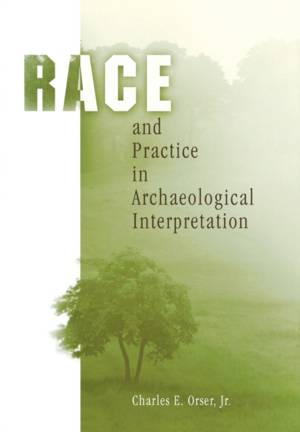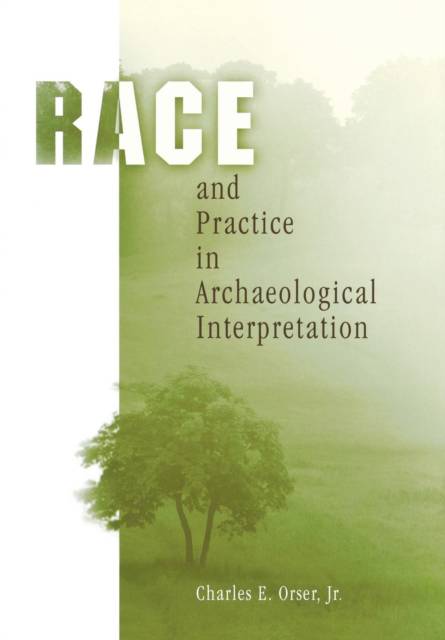
- Retrait gratuit dans votre magasin Club
- 7.000.000 titres dans notre catalogue
- Payer en toute sécurité
- Toujours un magasin près de chez vous
- Retrait gratuit dans votre magasin Club
- 7.000.0000 titres dans notre catalogue
- Payer en toute sécurité
- Toujours un magasin près de chez vous
Description
Race and Practice in Archaeological Interpretation Charles E. Orser, Jr. "An extraordinarily stimulating and provocative book, rich in ides and suggested new directions for archaeology."--Choice "Charles Orser outlines a research strategy for studying poverty and racism that is worthy of historical archaeology. . . . Much of this book is devoted to dealing with how people come to be worthy of being despised, usually by being seen as belonging to biologically inferior groups."--Journal of Anthropological Research Scholars who investigate race--a label based upon real or perceived physical differences--realize that they face a formidable task. The concept has been contested and condoned, debated and denied throughout modern history. Presented with the full understanding of the complexity of the issue, Race and Practice in Archaeological Interpretation concentrates on the archaeological analysis of race and how race is determined in the archaeological record. Most archaeologists, even those dealing with recent history, have usually avoided the subject of race, yet Charles E. Orser, Jr., contends that its study and its implications are extremely important for the science of archaeology. Drawing upon his considerable experience as an archaeologist, and using a combination of practice theory as interpreted by Pierre Bourdieu and spatial theory as presented by Henri Lefebvre, Orser argues for an explicit archaeology of race and its interpretation. The author reviews past archaeological usages of race, including a case study from early nineteenth-century Ireland, and explores the way race was used to form ideas about the Mound Builders, the Celts, and Atlantis. He concludes with a proposal that historical archaeology--cast as modern-world archaeology--should take the lead in the archaeological analysis of race because its purview is the recent past, that period during which our conceptions of race developed. Charles E. Orser, Jr., is Distinguished Professor of Anthropology at Illinois State University and Adjunct Professor of Archaeology at the National University of Ireland in Galway. He is author of A Historical Archaeology of the Modern World, Historical Archaeology, and The Material Basis of the Postbellum Tenant Plantation. He is also the editor of several books, including Images of the Recent Past: Reading in Historical Archaeology, and Race and the Archaeology of Identity. Archaeology, Culture, and Society 2003 320 pages 6 x 9 ISBN 978-0-8122-3750-4 Cloth $69.95s £45.50 ISBN 978-0-8122-0325-7 Ebook $69.95s £45.50 World Rights Archaeology, Anthropology Short copy: Charles E. Orser, Jr. argues that since race has been used implicitly in archaeology for more than 100 years, the issue must be addressed directly despite the long history of debate, denial, and ignorance.
Spécifications
Parties prenantes
- Auteur(s) :
- Editeur:
Contenu
- Nombre de pages :
- 320
- Langue:
- Anglais
- Collection :
Caractéristiques
- EAN:
- 9780812237504
- Date de parution :
- 26-11-03
- Format:
- Livre relié
- Format numérique:
- Genaaid
- Dimensions :
- 155 mm x 229 mm
- Poids :
- 657 g

Les avis
Nous publions uniquement les avis qui respectent les conditions requises. Consultez nos conditions pour les avis.






